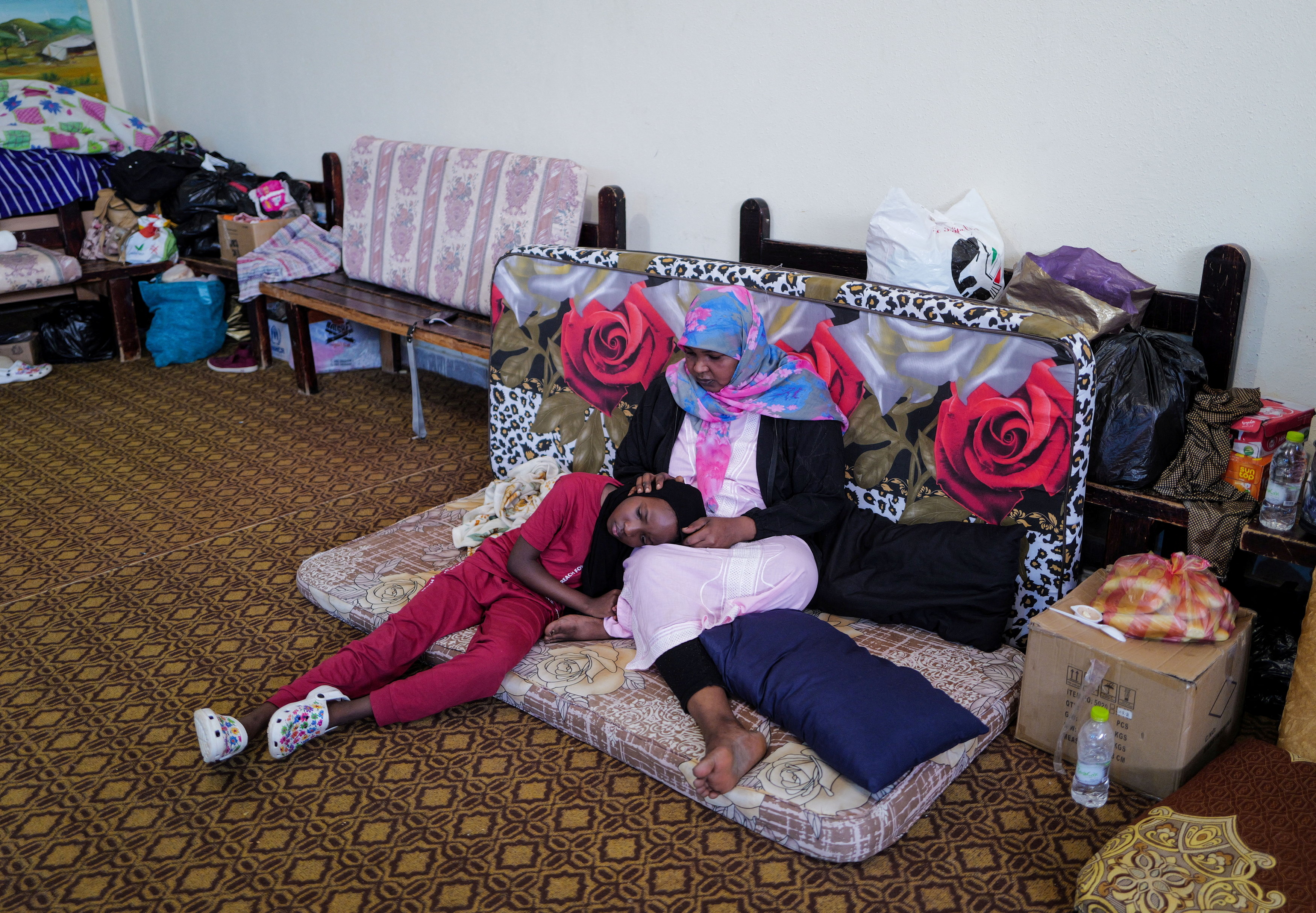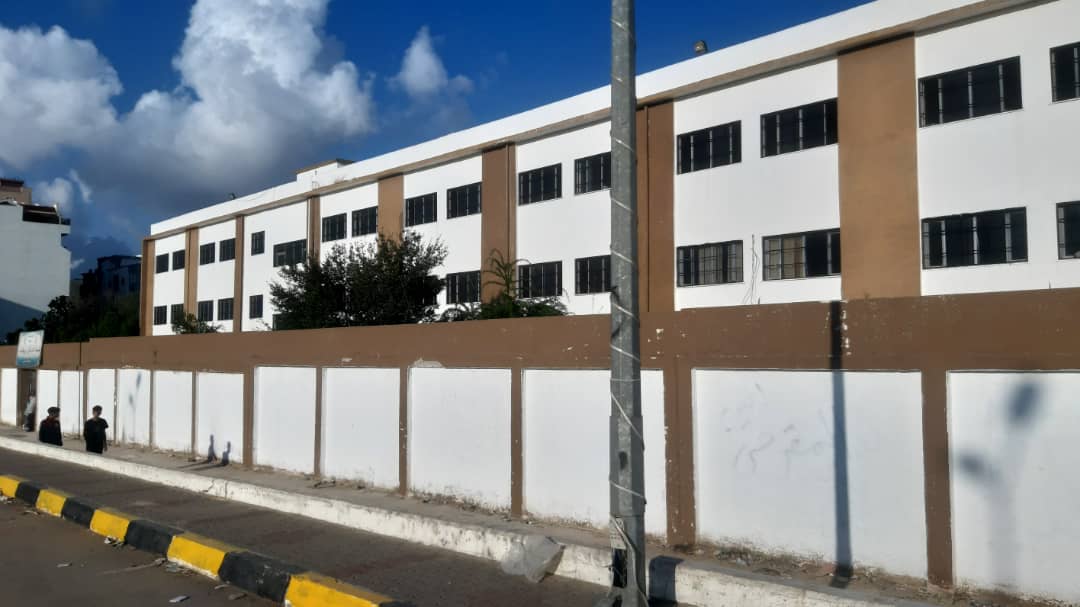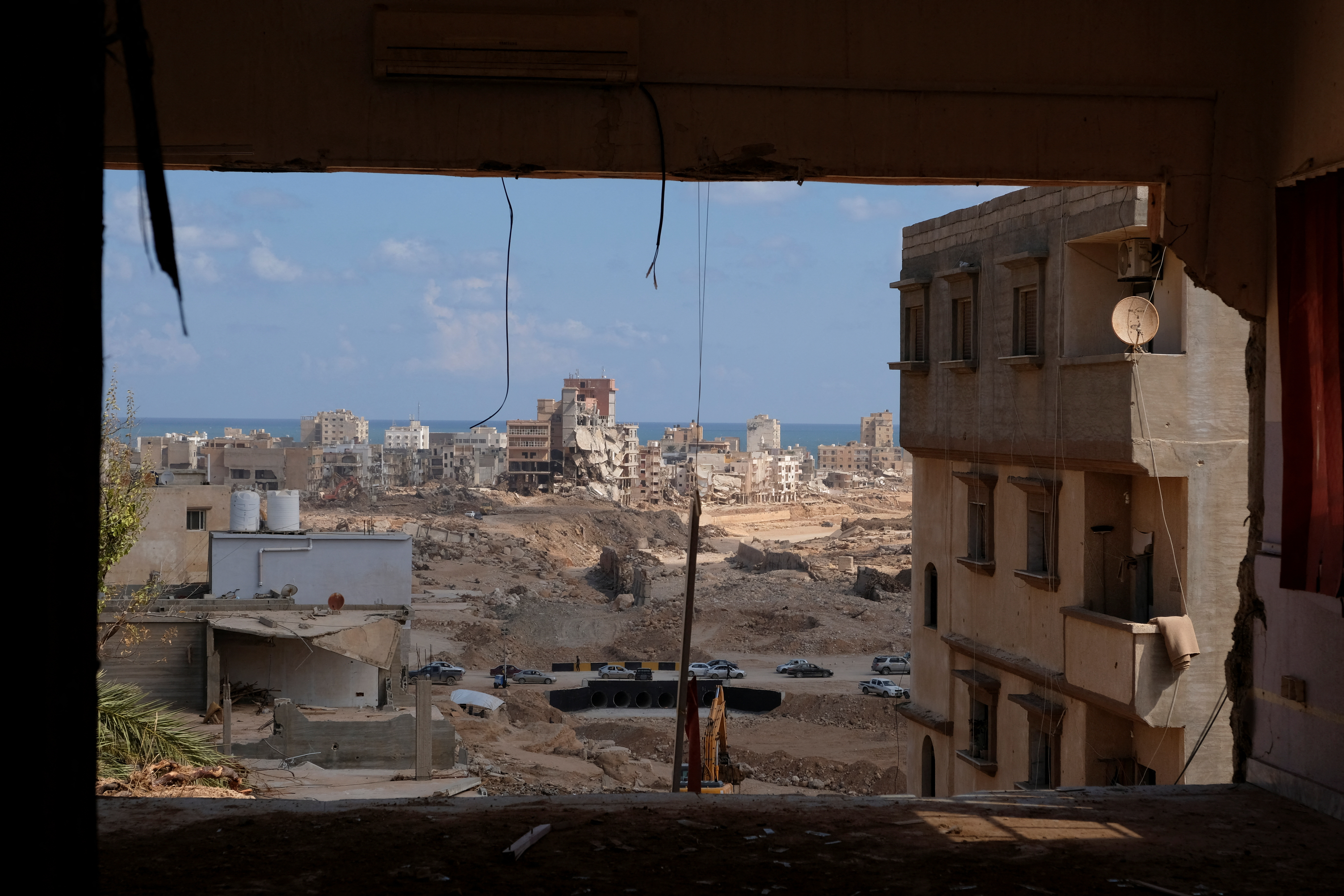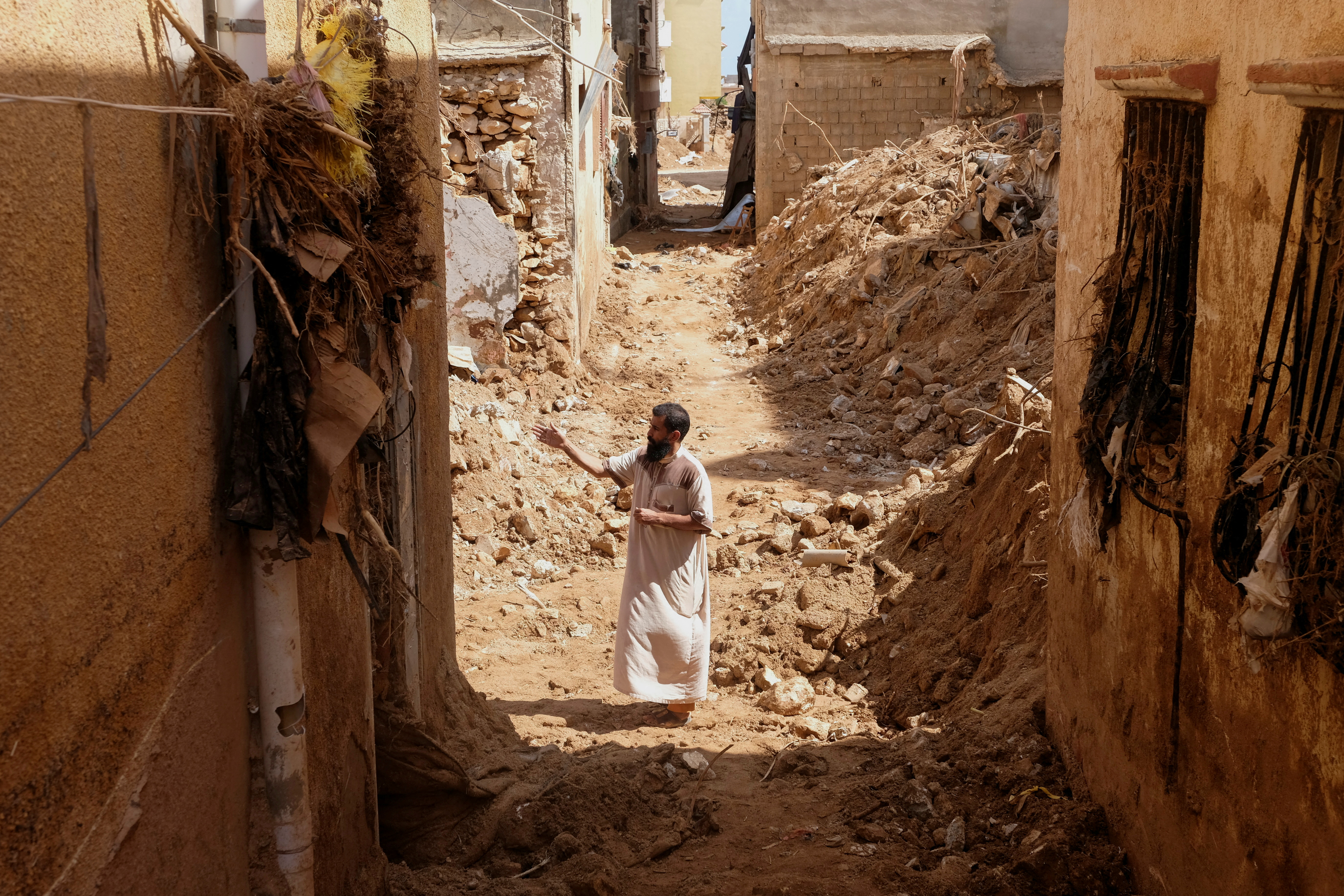
Often, in the middle of the night, Khadijah can hear screaming.
It could be the woman in the classroom next door, who has refused to change out of her abaya since Libya was hit with deadly floods on September 10. She fears more floods are on the way and wants to remain hidden from them, in the belief that her flowing robe will protect her, says Khadijah, 60.
Or perhaps it’s any one of many who saw their mother, father, child or grandparent swept into the sea when the dams burst above the eastern city of Derna, submerging it and its sleeping populace.
“The living are the ones who suffer; the dead are relieved,” Khadijah told Al Jazeera.
Khadija is one of thousands of people from the flood-battered city who have taken shelter in government schools after their houses were destroyed. She says she feels humiliated.
“Imagine closing your eyes on your own bed and then suddenly finding yourself lying on the cold floor of a public school,” she said, wiping away tears.
“I experienced most wars and disasters, [Muammar] Gaddafi’s siege of the city in the 1990s, the ISIS [ISIL] war in 2016, and the war of [Khalifa] Haftar’s forces in 2018, but what happened now was different [and] what came after it was more humiliating,” she added solemnly.
Khadija, her relatives, the 20 or so other families at the school they’re sheltering in, and the hundreds sheltering elsewhere are now “climate refugees”, the informal term used for those displaced by environmental disasters.

But Derna was itself a refuge for thousands of migrants from neighbouring nations, alongside Libya’s own internally displaced population who settled in the coastal city from other parts of the country.
While the reasons they fled vary, climate-induced pressures compound with factors such as conflict and poverty, a complex web driving displacement in the region that will only continue in the years to come, experts have said.
Pushed out slowly – or all of a sudden
Khadija and other Libyans from Derna are entangled in this complex web but the stage was already set for the disaster that engulfed their homes and loved ones.
Storm Daniel was up to 50 times more likely to occur and 50 percent more intense because of human-caused climate change, according to the World Weather Attribution group.
The ailing, mismanaged dams were a key factor, as well.
“It can’t really be [overstated] how important the infrastructure issue is, because that’s one of the main catalysts for climate displacement,” Benjamin Freedman, an analyst at the Middle East Institute, told Al Jazeera.
The failing dams, alongside migrants “who weren’t necessarily properly settled”, created the “perfect storm for an outrageous humanitarian disaster”, he added.
While the flash flood created a sudden push for survivors to flee, most people who leave their lands for environmental reasons do so due to “slow-onset conditions” like multi-year droughts, Aimee-Noel Mbiyozo, a senior research consultant at the Institute for Security Studies, told Al Jazeera.
Before the floods, Libya was host to more than 705,000 refugees and migrants from more than 44 nationalities, according to Michela Pugliese, a migration and asylum researcher at Euro-Med Human Rights Monitor.
More than 230,000 of these refugees and migrants were living in eastern Libya, the part of the country devastated by the storm, the majority having arrived from neighbouring countries like Chad, Egypt, Niger, Nigeria and Sudan, she added.
Some 8,000 of them lived in Derna specifically, but it is likely that many others were present and not officially reported, said Pugliese.
While the reasons they ended up in Libya varied – many hoping to ultimately depart to Europe – some left their homes over lost livelihoods because of climate disasters.
“A lot of people coming [to] Libya from Chad, Sudan, and Niger were employed in the agricultural sector at home and came to Libya after having lost crops or livestock assets due to climate events like drought or floods,” Pugliese said.

International law doesn’t recognise climate refugees
Discerning just how many of Derna’s 8,000 refugees were climate refugees, and how many Libyans have now become climate refugees due to the floods, is a challenge – largely because that term doesn’t exist under international law.
“This term has no legal basis under refugee law yet, so neither UNHCR [the UN refugee agency] registering asylum seekers, nor legal desks aiding migrants, would use this as an official category,” said Pugliese.
Mbiyozo added that people who move for climate-linked reasons rarely identify it as such.
“We ask people, why have you moved and they almost never say, ‘climate change’,” she said.
“They’re going to tell you it’s to find a better economic opportunity, so they’re moving for jobs or for livelihood. But then you have to go a level deeper and say, ‘Well, what’s changed?’”
In West Africa, for example, a refugee may be fleeing Boko Haram because the armed group took their cattle due to dwindling resources, she said.
Climate change in the context of migration, therefore, is a “fragility amplifier or a threat amplifier”, said Mbiyozo.
Freedman said that, as climate disasters become more common, there needs to be a system in place to identify people fleeing because of them.
When these groups of people attempt to claim asylum in Western countries specifically, they are denied at a much much higher rate due to the arbitrariness of the category, he said.
But the situation will only continue to worsen, “especially when we’re dealing with potentially 1.2 billion people displaced internally and externally by intensifying climate weather events by 2050,” Freedman added.
Mbiyozo argued, however, that if the laws were rewritten, namely the UN Refugee Convention of 1951, a lot of Western countries “would pull back what they currently offer”.
“Everybody in the refugee space knows intuitively that if you were to redraw these things, you get less protection because that’s the political climate right now,” she said, adding that Italy, for example, is trying to deny as many asylum seekers as it can.

‘Nothing but promises’
Despite an unwillingness from Western countries to take on new categories of refugees, experts say most climate-linked movement stays local, with many pushed from rural areas to urban cities.
Among the 40,000 people displaced in Libya’s floods, many moved to towns and villages further east and several hundred moved west, said Pugliese.
Among them, are the “twice-displaced” too, pushed from their countries to Libya, and then pushed again from Derna to elsewhere.
“It is far too early to tell what will happen to [these displaced peoples], as for now the response is still purely a humanitarian one,” said Pugliese.
Back in Derna, Khadijah is resolute that she and her family cannot stay at the school much longer.
Pulling one of her granddaughters close, she asked: “What is this child’s fault? Kids her age are studying in schools, and she lives here.”
Some of the women at the school hold back from going to the toilet due to concerns about privacy, and the classrooms are frigid at night even though winter has yet to come, Khadijah said.
She says she has “seen nothing but promises from the government”.
“We are living a real hell,” said Khadijah.








